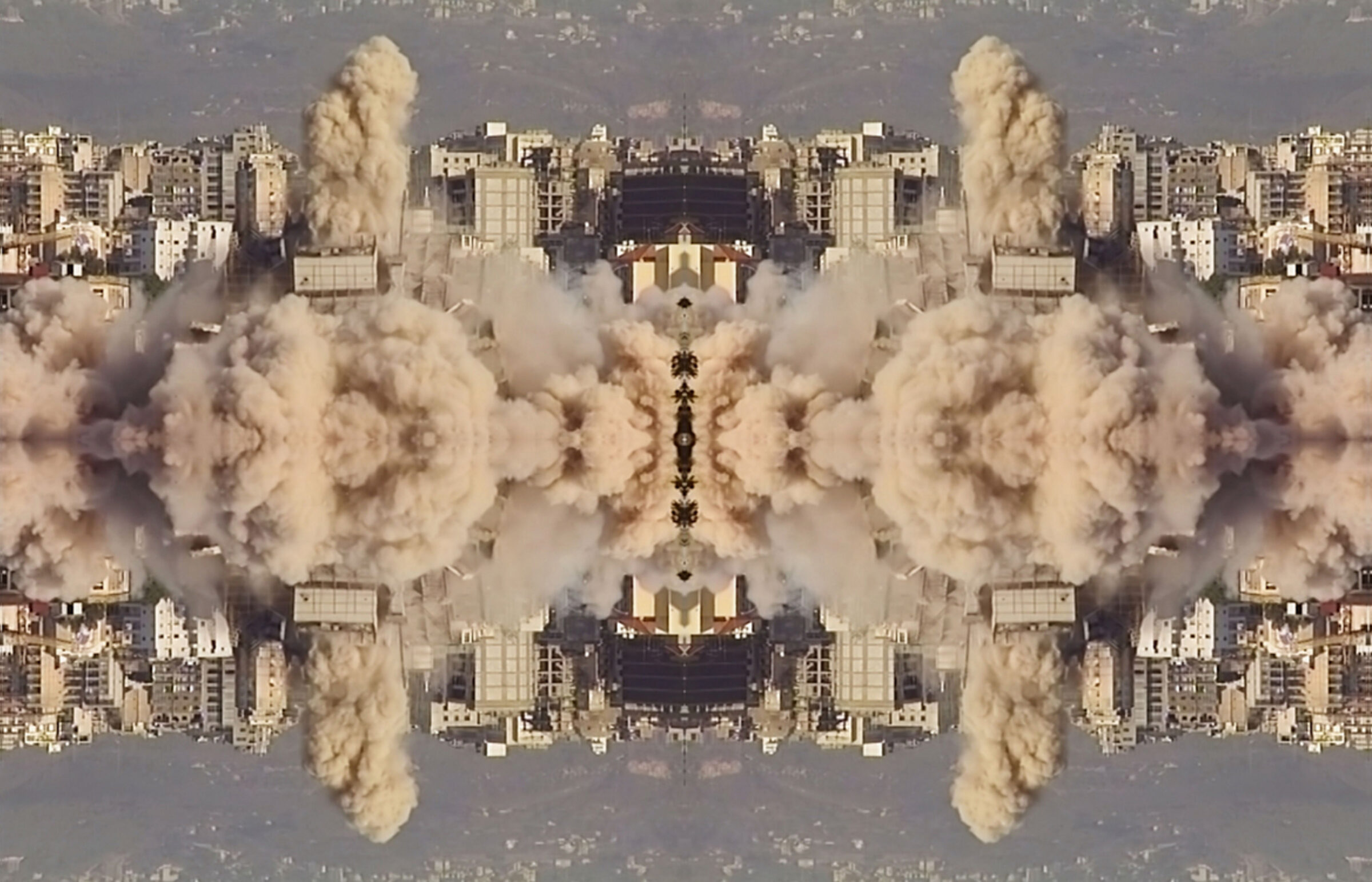Download the catalog of Walid Raad's 2015 exhibition at the Museum of Modern Art, New York.
Teaching Guides
Walid Raad
Through processes of archiving, story-telling, and performance, Walid Raad’s work explores how historical events of physical and psychological violence affect bodies, minds, culture, and narrative. His practice investigates the role that documents, photographs, and memories play in the telling of history, asking whether documentary traces of historical events and experiences can ever fully capture the “truth” of what happened.
One major strand of Raad’s work studies the events and afterlives of the Civil War in Lebanon (1975–91), where Raad was born in 1967. Yet his practice is less concerned with recounting the history of the Civil War than the impossibility of doing so directly. Through extended research-based projects, Raad inhabits various roles as an archivist, teacher, historian, actor, and artist to investigate strategies of fiction and imagination as alternative modes of conveying truths.
Guiding Questions
How do we tell a truth? How do we perform a truth? How do we teach a truth?
“Tell all the truth but tell it slant,” Emily Dickinson famously wrote. Dickinson’s poem reflects the complexity of telling truths — a key theme of Walid Raad’s work.
Activities
The following exercises are structured to sequentially build on each other. We encourage you to consider how their learning objectives develop as you engage with these activities or adapt them to your teaching.
Activity 1: Responding to the Guiding Questions
How do we tell a truth?
How do we perform a truth?
How do we teach a truth?
Activity 2: Documents
What is a document?
What does it mean to document?
Activity 3: Probable Passage
Probable Passage is a pre-reading strategy used by teachers to support students to begin engaging with important, sometimes unfamiliar, words as a way to set the stage for the actual reading of a narrative text.
Activity 4: Interview with Walid Raad
Walid Raad plays many roles across his artwork and practice. Some of the roles he wears are: artist, historian, teacher, tour guide, and archivist. We held a short interview with Raad about his work as an educator.
Biography
Walid Raad is an artist born in Lebanon in 1967 and grew up in East Beirut. Compelled to leave during the Lebanese Civil War, he emigrated to the US, where he finished high school. Raad completed his undergraduate work at the Rochester Institute of Technology in New York State, where he took classes in photography and Middle Eastern studies. He subsequently received a PhD in Visual and Cultural Studies at the University of Rochester, completing his dissertation on the capture of Western hostages in Lebanon in the 1980s. During the course of his PhD, he also took a break from his studies to live in Lebanon in the early 1990s, where he participated in Beirut's lively artistic scene and made long-lasting contacts with artists and writers including Akram Zaatari and Jalal Toufic.
His work engages film, photography, installation, performance, and forms of fictional collectivities to explore how histories are archived, remembered, and re-told. Raad has exhibited work widely across the world, and is currently a Professor of Art at The Cooper Union in New York.
Additional Materials
View Walid Raad's project The Atlas Group (1989–2004) online.
View Walid Raad's project Scratching On Things I Could Disavow, ongoing since 2007.
Watch a seminar series led by Walid Raad and Jalal Toufic on "The Withdrawal of Tradition Past a Surpassing Disaster."
Listen to an audio walkthrough of Walid Raad's project Scratching on Things I Could Disavow at the Museum of Modern Art, New York.
Read Alan Gilbert's two-part essay on Walid's method of interrogating how history is written, titled 'Walid Raad's Spectral Archive, Part I' and 'Part II'.
Read Elisa Adami's text "How to Perform a Truth?" on A.R.T. Notes, responding to one of the Guiding Questions of this Reading Resource.
Elisa Adami: How to Perform a Truth?

"How to perform a truth about traumatic and contested events such as those that go under the name of Lebanese Civil Wars? How to reconstruct a truth which has broken down into many fragmentary and contradictory splinters of archival evidence? ... Through performance and storytelling, Raad reveals how truth is neither definitive nor incontestable. He urges us to rethink what we understand as “the truth” and to reclaim the many other truths we might have neglected in its place."
Reading Resources: Walid Raad is available as a downloadable PDF.
《阅读资料:瓦利德·拉德》PDF下载。
We would also love to hear how you have used Reading Resources. Please share feedback and student work at [email protected].
Colophon
Reading Resources: Walid Raad was produced by Wendy Tronrud (A.R.T. Education Advisor) in collaboration with Art Resources Transfer (A.R.T.) in 2021–22.
This program is supported, in part, by public funds from the New York City Department of Cultural Affairs, in partnership with the City Council.
Further support was granted by:
National Endowment for the Arts
H.W. Wilson Foundation
Wilhelm Family Foundation
A.R.T. Board of Directors
A.R.T. Advisory Board
Most specially, we thank Walid Raad.
Design by Other Means.
Copyright © Art Resources Transfer, Inc. 2022.
All images are protected under copyright by the original rights holders.
A.R.T. is a 501(c)3 nonprofit.
